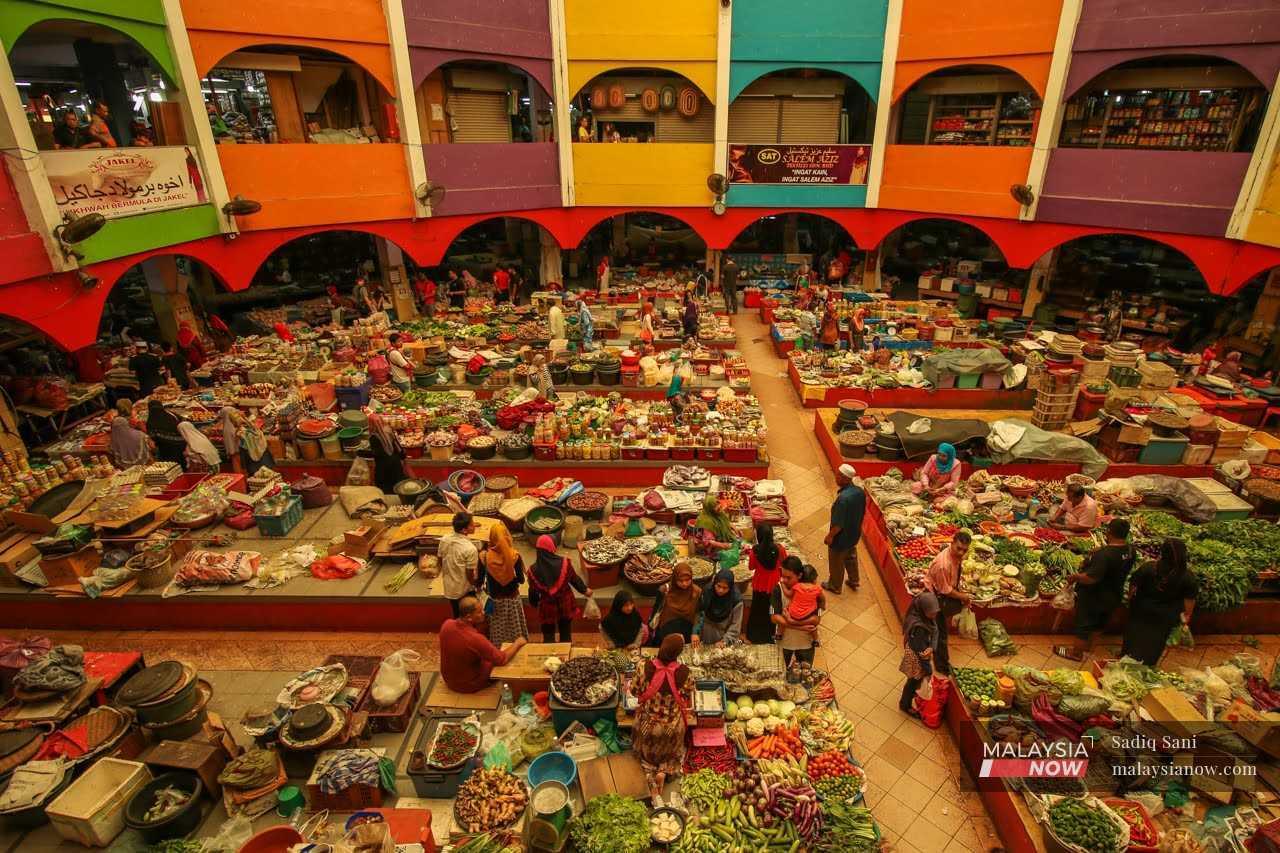Breakfast at a market in Kelantan
There's no place like home for Awe Wong, who grew up in the state with the market playing a central role in his life.
Just In
Every Friday morning, Awe Wong makes his way to the food court at the Siti Khadijah market in Kota Bharu, Kelantan.
For years, this has been his routine.
His favourite meal consists of hot ginger tea with nasi kerabu, rice with mackerel gulai, or laksam.
"I rarely travel out of Kelantan," the 63-year-old told MalaysiaNow while eating at a table with his 11-year-old grandchild.
"It's hard to find the kind of food that I like to eat. Here, I go around the market every day deciding what I want to have. Today, I might have laksam. Tomorrow, maybe I'll have rice.
"Sometimes I just buy some kuih and go back to eat at home."
Awe, whose real name is Wong Wei Foo, lives over a shoplot in the old Kota Bharu town.
The Siti Khadijah market has been a part of his life for as long as he can remember.
His mother, a Chinese from Thailand, sold fruits at a stall in Kota Bharu even before the market was built.
And his father, a Kelantanese, was a van and lorry driver who made a living delivering fruits and other goods to markets and sundry shops around town.
Today, his nephews have become some of the market's main fruit suppliers, and Awe himself is close friends with many of the locals.
'Before 1Malaysia'
Speaking to MalaysiaNow, Awe recalled his many friendships with traders from all races and ethnic backgrounds.
He spoke of an Indian friend who sold collectibles such as rings, daggers and antique clocks.
He also recalled a Malay friend who sold fish, and any number of Thai traders who migrated to Kelantan in order to make a living.
"We were already there, before 1Malaysia came about," he said. "Not just Malaysians, either. We took care of our Thai friends as well."
The Siti Khadijah market, located in the city centre, has been a major tourist attraction since its establishment in 1985.
A four-storey building, it was previously known as Pasar Besar Buluh Kubu. There, traders rent commercial units on the upper floors and sell fresh goods on the lower levels.
It is also a symbol of women entrepreneurship, boasting a large number of female traders.
A couple looking for toys for their daughter said they had gone on many dates at the market during their days as medical students at Universiti Sains Malaysia in Kubang Kerian.
Today, years later, they still enjoy visiting the market where they say the food has not changed.
Their five-year-old daughter, meanwhile, loves the kuih akok – a traditional dessert from Kelantan.
"The most original and delicious kuih akok is here at the market," they said. "We used to enjoy it, and now our daughter does as well."
Living in Kelantan
Elsewhere in the market, Chinese families mingled in the crowd alongside the tourists, enjoying the tail end of the Chinese New Year break.
For Awe, at least, there is no better place to be. And his grandson, enjoying his breakfast beside him, appears to agree.
"My parents live in Selayang," the boy said. "But I go to school in Kelantan. It's really fun."
Awe, meanwhile, intends to continue his weekly trips to the market for as long as he can. Many of his friends have moved away while others have died, and the market has become a place for him to reminisce about the old days.
"Sometimes I buy food and take it home to eat," he said.
"Sometimes I sit here and eat with my wife, my children and my grandchildren. I've never missed a single opportunity to come here."
Subscribe to our newsletter
To be updated with all the latest news and analyses daily.
